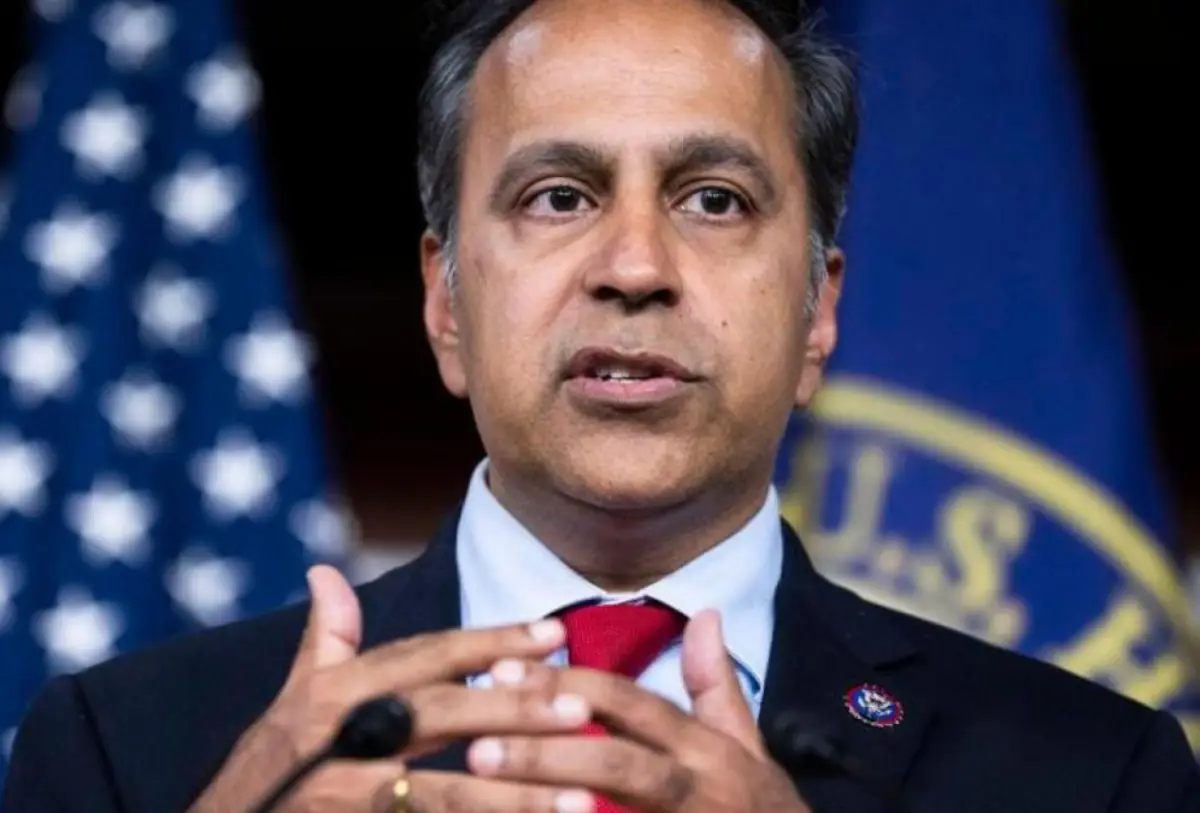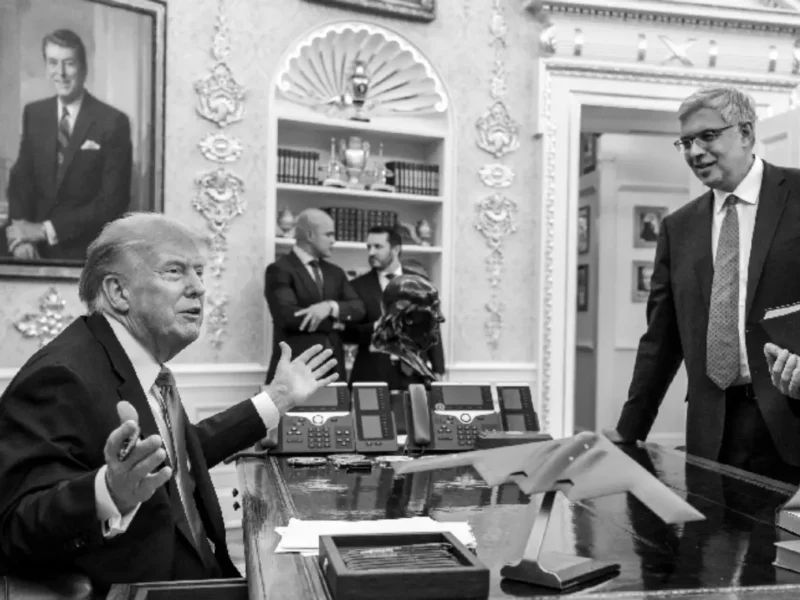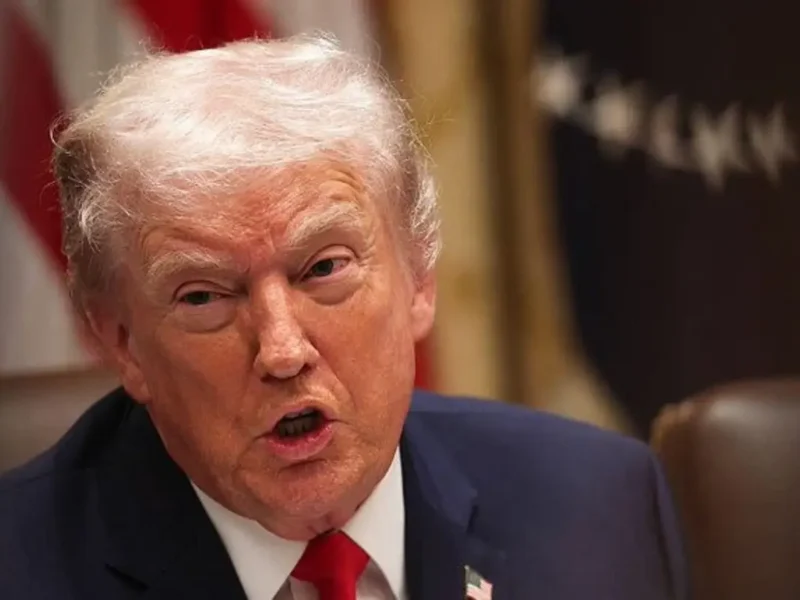Raja Urges Stronger Export Controls On Chips Used In China’s DeepSeek AI Platform
Photo: Select Committee on the CCP
India-West News Desk
WASHINGTON DC — Chairman John Moolenaar (R-MI) and Ranking Member Raja Krishnamoorthi (D-IL) of the House Select Committee on the Strategic Competition Between the United States and the Chinese Communist Party have called on National Security Advisor Mike Waltz to assess the national security benefits of imposing stronger export controls on semiconductor chips critical to the AI infrastructure of the Chinese company DeepSeek.
In a letter addressed to Waltz, the lawmakers highlighted DeepSeek’s use of Nvidia’s H800 chip, which was designed specifically to circumvent existing U.S. export controls. The letter emphasized the necessity of updating export controls to prevent China from exploiting regulatory gaps to further its AI capabilities.
“The Select Committee has long argued that frequently updating export controls is crucial to prevent the PRC from using regulatory loopholes to enhance their AI ambitions,” the lawmakers wrote.
Additionally, Moolenaar and Krishnamoorthi requested that the National Security Council consider restricting the use of PRC AI systems in U.S. critical infrastructure under Executive Order 13873. They also urged updates to Federal Acquisition Regulations to prevent the federal government from acquiring AI systems like DeepSeek’s, except for intelligence and research purposes.
Moolenaar stressed the need for stronger export controls, citing national security concerns related to DeepSeek’s growth and its ties to the Chinese Communist Party. “To protect American leadership in AI, the U.S. must swiftly strengthen export controls on the technology behind DeepSeek’s model,” Moolenaar said.
Krishnamoorthi added, “Export controls and AI innovation are not mutually exclusive but are two sides of the same coin,” advocating for measures that balance safeguarding U.S. data while ensuring continued competitiveness in the global AI landscape.
The lawmakers also requested a review of shipments routed through third countries like Singapore, which could potentially be used to divert chips to China. They noted that Singapore accounted for 22% of Nvidia’s revenue in its most recent quarterly report, with much of that revenue linked to shipments ultimately destined for China.





VIJAY
/
I think, China stole the US technology to design DEEPSEEK!
February 3, 2025